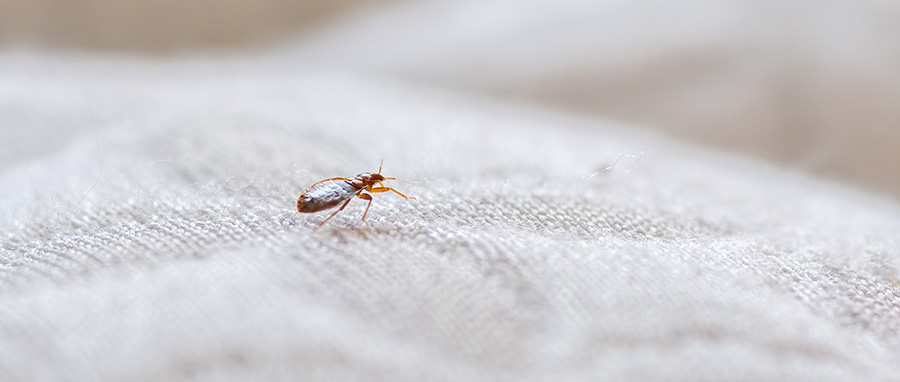Once nearly eradicated in the developed world, bed bugs have made a comeback in recent decades due to their evolving resistance to pesticides. Over the past 25-30 years, their numbers have grown steadily, posing a significant challenge to homeowners and businesses alike.
As these resilient pests continue to proliferate, it’s essential to familiarize yourself with their behavior and the importance of swift action. Contacting your local pest exterminators for bed bugs promptly helps mitigate the spread of infestations and protect your living or working environment.
Here are some facts you should know about bed bugs to avoid and eradicate them more effectively:
-
Bed Bugs Can’t Jump or Fly
Bed bugs do not possess the physical capabilities to jump or fly. They move by crawling and are relatively slow compared to other household pests. They rely on hitchhiking to move from place to place, often latching onto clothing, luggage, or furniture.
-
They’re Great at Traveling
Ever wondered how bed bugs find their way into your home? They’re expert travelers, hitching rides in luggage, furniture, or even clothing. Once indoors, they quickly find hiding spots to settle in.
-
Where There’s One, There’s Likely More
While bed bugs can survive alone, they thrive in groups. Finding one bed bug often indicates the presence of more nearby. They prefer to nest together for mating and egg-laying, with a single female capable of laying up to five eggs per day.
-
They’re Picky Eaters
Bed bugs are members of the insect family Cimicidae, and each type of cimicid prefers a specific type of host. Cimex lectularius, otherwise known as the common bed bug, feeds primarily on human blood. They also prefer to return to the same place and the same host to feed, which is why their nest is usually somewhere close to where they are feeding.
-
There Are Bug-Sniffing Dogs
Specially trained dogs are now employed to detect bed bugs. With their keen sense of smell, these canine detectives can sniff out bed bugs even in hidden locations like mattress seams or furniture, making pest detection easier and more efficient.
-
Bed Bugs Infest Clean Homes & Sheets
There’s a myth that suggests that only unclean or unkempt homes can harbor bed bugs. In reality, bed bugs can infest any environment, regardless of cleanliness. They are attracted to humans and animals for blood meals, not dirt or clutter.
Bed bugs are attracted to the carbon dioxide and warmth emitted by humans, not the cleanliness of the sheets. Clean sheets won’t deter bed bugs if there are other signs of human presence, such as body heat and exhaled breath.
-
They’re Small, But Not Too Small to See
While bed bugs are small, typically about the size of an apple seed, they are still visible to the naked eye, especially in their adult stages. Early detection can be challenging due to their nocturnal habits and ability to hide in cracks and crevices, but they are not invisible.
-
Bed Bugs Don’t Just Live in Beds
Contrary to popular belief, bed bugs can infest various places beyond just beds. They can be found in upholstered furniture, cracks in walls, electrical outlets, luggage, and even clothing. Their name is misleading; they can thrive anywhere close to their hosts.
-
They’re Amazing Hiders
Bed bugs are nocturnal creatures, preferring to come out at night to feed. During the day, they retreat to hiding places, making them elusive and challenging to spot without professional help.
-
Bed Bugs Don’t Transmit Diseases
Although bed bugs feed on blood, there is no evidence to suggest that they transmit diseases to humans. Their bites may cause itching, irritation, and allergic reactions in some individuals, but they are not vectors for diseases like mosquitoes or ticks.
-
They’re Active Throughout the Day
While bed bugs are primarily nocturnal and tend to feed at night when their hosts are asleep, they can also be active during the day if they’re hungry and the environment is conducive to feeding. Their activity patterns can vary depending on factors like hunger and disturbance.
-
Bed Bugs Can Cause Significant Harm
While bed bugs are not known to transmit diseases, their presence can have significant psychological and emotional effects on individuals and families. Dealing with a bed bug infestation can lead to stress, anxiety, and sleep disturbances, impacting overall well-being and quality of life.
-
They’re Not Eliminated Easily with DIY Methods
Effective bed bug control typically requires professional intervention. DIY methods such as over-the-counter pesticides or home remedies may provide temporary relief but often fail to eradicate infestations entirely. Proper treatment often involves a combination of chemical treatments, heat treatments, and thorough cleaning.
Do You Suspect Bed Bugs? Eden Advanced Pest Technologies Can Help!
While bed bugs may not transmit diseases, their presence can lead to discomfort and allergic reactions, including rashes and blisters. Moreover, their rapid reproduction means that an infestation can escalate swiftly if left unchecked.
At Eden Advanced Pest Technologies, we specialize in eliminating bed bug infestations and preventing future outbreaks. With over 24 years of experience, we hold our staff to high standards. We work with you to form a plan that best suits your needs.
So don’t let bed bugs disrupt your peace of mind – contact us today to reclaim your home from these unwanted pests. We offer free in-home estimates!


